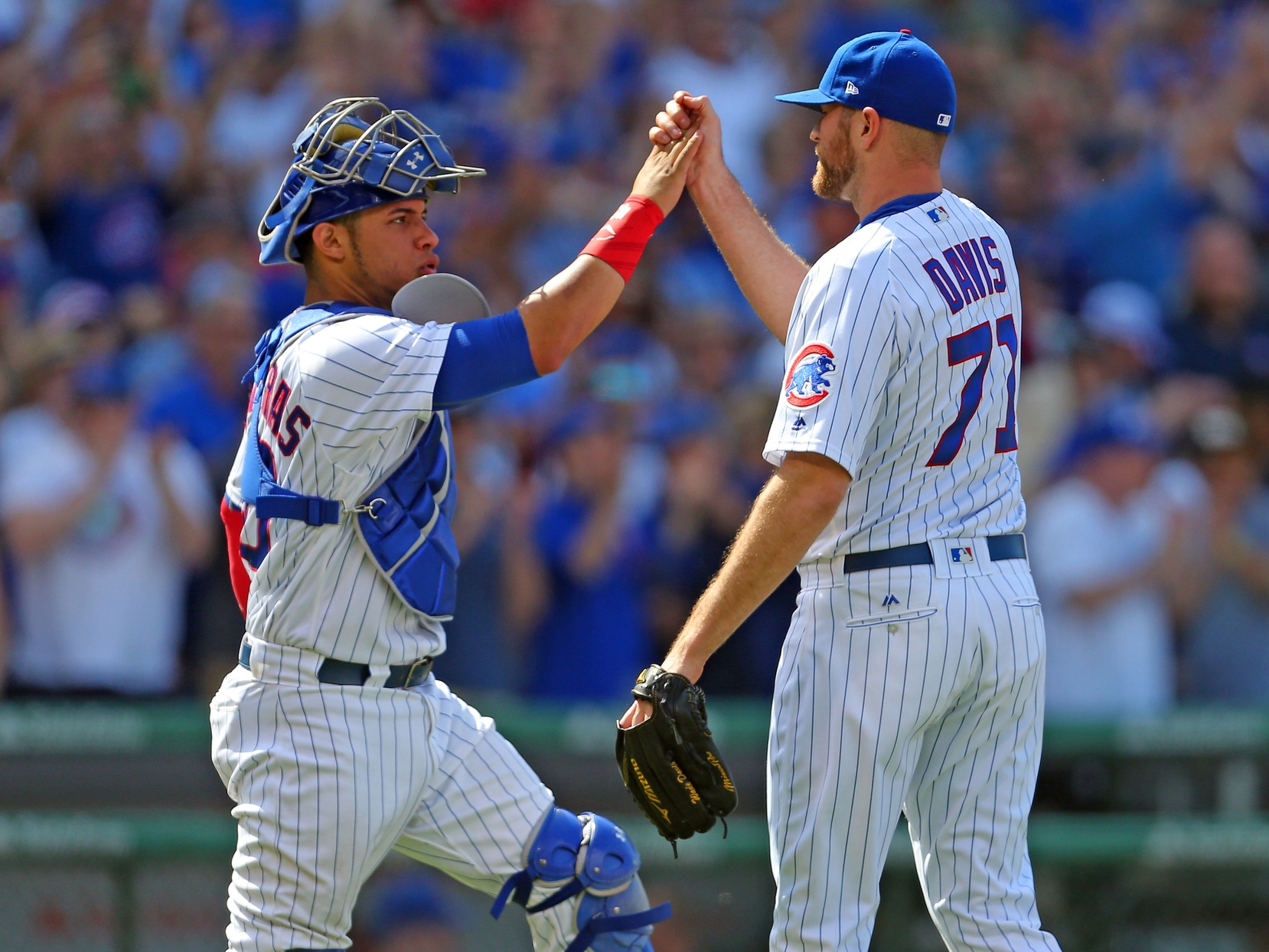The Chicago Cubs were an unstoppable machine in 2016. Their offense was fueled by the efforts of MVP Kris Bryant, adorable Anthony Rizzo, and the shiny smile of Dexter Fowler. Their pitching staff was infallible thanks to multiple career-best years and a tremendous defense behind them. Simply everything went right for the Cubs as they marched toward their first World Series championship in over 100 years. Okay, fine not everything went right. They did lose Kyle Schwarber for all but four games in the World Series and endured an anemic offensive season from Jason Heyward. But other than that, they were riding high on their way to 103 regular season victories.
While winning 100 games is quite common in the history of Major League Baseball, teams having similar success two seasons in a row is far less common. A variety of reasons including decreased luck, fatigue, and talent leaving the team create this effect.
The last team to win 100 games in a season before the Cubs was the Cardinals in 2015. Cubs fans will be the first to tell you that those 100 wins were fueled by a lot of talent and a lot of luck. That showed itself as the 2016 Cardinals failed to reach the postseason with a 86-76 record. Before the, it was the 100-win 2011 Phillies, who turned into a perfectly .500 (81-81) 2012 Phillies team. It’s not universally true, of course, as the Yankees, Athletics, and Braves of the early 2000’s demonstrated dominance over the course of multiple seasons. However, in the most recent years it appears to be a difficult task.
Why have the Cubs specifically struggled to repeat their dominance? There’s a few reasons. Many assumed the Cubs wouldn’t have as much trouble as the Cardinals or Phillies of recent years because of their relative age. Rizzo, Bryant, Baez, Schwarber, Contreras, and Russell all form an incredible core of talent at a young age. The only key departures the team saw were rental Aroldis Chapman, who was replaced by an equally impressive Wade Davis, and Dexter Fowler. More on Fowler later, but the main point here is that a good portion of the World Series winning talent remained in Chicago. However, that talent has failed to live up to the expectations set out before them.
Javier Baez had a good postseason, especially in the first two rounds. Now he’s contributing just a 101 wRC+ with a .299 OBP. His power and defense are still real, of course, but he hasn’t been able to refine the other parts of his game. Rizzo was a possible MVP candidate last year, but this year his slash line of .226/.366/.447 isn’t anywhere close to the production the Cubs require. Schwarber has been perhaps the most disappointing of all. It would’ve been hard to predict what he would do based on such a small amount of time spent in the big leagues, but many believed that he would seamlessly transition into the 2017 season. Such has not been the case for Schwarber and his 72 wRC+, .284 OBP, and 9 home runs.
Russell and Contreras haven’t developed as quickly as some have expected. Russell has been the worst offensive player on the team (minimum 40 plate appearances) by wRC+ (69). It would be nice for the Cubs if he could raise that to a more respectable mark, closer to league average. Contreras is doing better than Russell (96 wRC+), but the Cubs are still waiting for a big offensive breakout.
Poor offensive performances from key players is certainly not the only reason the Cubs have failed to see as much success as the 2016 team. Joe Maddon made it a point during the Cubs winter convention that a repeat of the team’s defensive dominance would be key. Repeating such a thing was easier said than done. It’s easy to point to changes in the outfield as the reason for decreased defensive production. In reality, the defense as a whole has been less crisp. As a result, the team’s incredibly .255 BABIP from a year ago has risen to .293 in 2017, which is just a tick above the league average of .292.
The fall-off in defensive production hasn’t helped the starting staff, which has been going through regression problems of their own. A year ago Kyle Hendricks, his wicked changeup, and excellent command tore through the league for the best ERA among qualified starters. This year he’s failing to prevent runs at anywhere close to the same pace, looking more like the pitcher he was before 2016. That’s still a useful rotation member, but he was the man behind so many of the Cubs wins a season ago.
Jon Lester finished second in Cy Young voting last year, but this year he’s struggled to provide the same level of dominance. The failures of Jake Arrieta have been chronicled plenty. The pitching staff had an outstanding season a year ago. That would’ve been hard to repeat.
The point of all of this is simply to say that winning 100 games is hard to do. The Cubs benefitted from good luck and career performances. At the heart of the team, they still have the talent to compete for their division and beyond. They’ve seen their good luck turn quickly to bad this season, but that doesn’t mean it’s bound to continue. The Cubs are a good team experiencing a common phenomenon. It’s hard to believe that a little luck won’t start going there way soon. They won’t win 100 again, but they still have the talent to make some noise.
Lead photo courtesy Dennis Wierzbicki—USA Today Sports
